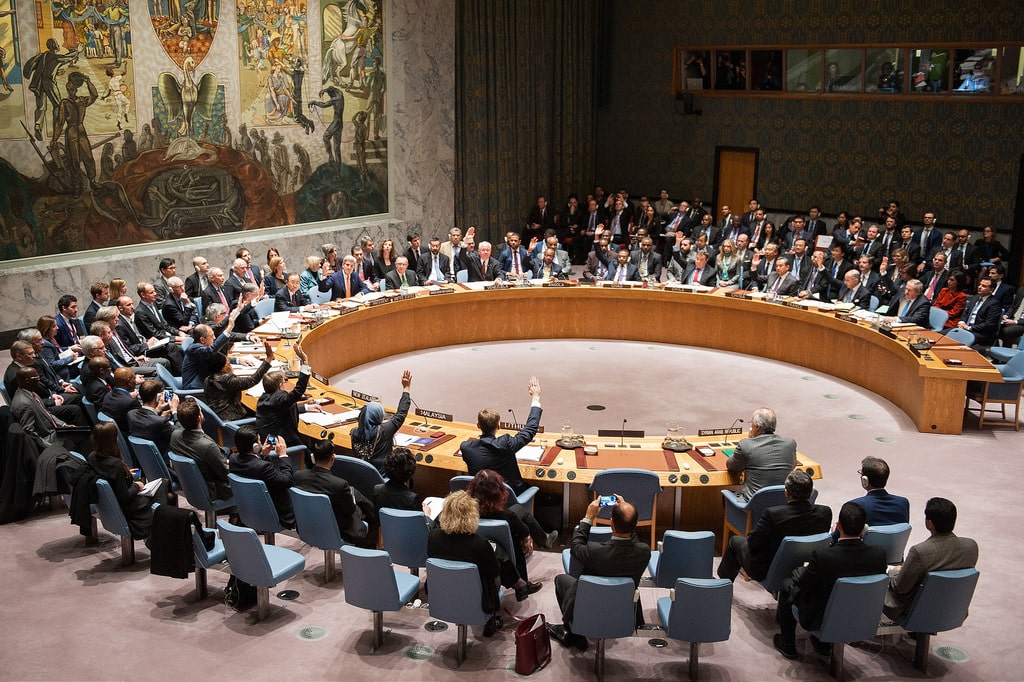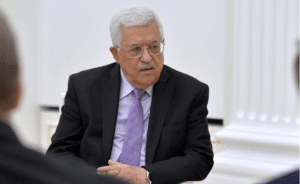Palestinian President Mahmoud Abbas called during a special address on February 20th before the United Nations Security Council (UNSC) for an international peace conference on the Israeli-Palestinian conflict. The address came amidst tensions between Israel and Palestine over President Trump’s decision to recognize Jerusalem as Israel’s capital. Abbas therefore denounced the American mediating position during his speech. Instead he called for the creation of a new “multilateral international mechanism”, that would replace the American diplomacy. The potential breakdown of the current framework of the peace process happened against the backdrop of worsening relations between Israel and Palestine. In January, the PLO’s Executive Committee proposed to create a ‘’plan of disengagement’’ with Israel. Twenty-five years of diplomacy seems to be under pressure according to Abbas.
The American position The mediating role that Washington has in the conflict is no longer accepted by the Palestinians. In his address Abbas attacked the American position. The United States is according to the Palestinian leadership no longer neutral. Arguing that a new international coalition should take over the American role. The Trump administration has warned Palestine that refusing the current American move towards a solution could result in the end of American aid to the Palestinians. American ambassador to the United Nations, Nikki Haley, also warned the 81 year old President that he is part of the problem. “Our negotiators are […] ready to talk. But we will not chase after you. The choice, Mr. President, is yours.”
The confrontations between the United States and Palestine are remarkable. The United States has had an leading role in the peace process since the Oslo I accords in 1993. In all subsequent peace initiatives and talks Washington played a leading role.
Worsening relations Abbas also attacked the position of Israel in his address. Accusing Israel of behaving like a ‘’state of above the law’’. The remarks follow a string of accusations made by both parties. With Jerusalem presumably of the negotiation table, the PLO’s largest party, Fatah, is losing faith in Israel’s intensions. The Executive Committee of the PLO urged Abbas to plan a possible disengagement from Israel. Such a move could include the suspension of the recognition of the Israel according to council members. The mutual recognition was the basis of the Oslo peace process. The committee would furthermore like to look into possible Israeli war crimes and bring them before the International Criminal Court. President Abbas has the final say, making it according to experts unlikely that it will happen.
Nonetheless came this proposal in a time of worsening relations between Israel and Palestine. Abbas has been arguing since December that the Oslo process has been undone by Israel. ‘’There is no Oslo anymore’’. The Oslo accords were the basis for Palestinian governance over certain regions of the West bank. 40% of the area is under full Palestinian civil control, while Israel controls the remaining 60% (Smith 2012). The status of Jerusalem was not specified in the agreement. The continuing expansion of Jewish Settlements and the status of Jerusalem put the accords under pressure according to Palestinian officials. The Jewish state in its turn has accused the Palestinian leadership of undermining the peace process by making such remarks. Prime Minister Netanyahu stressed that Abbas is the problem. “He exposed what we have been saying all the time, that the root of the conflict is the basic refusal to recognize a Jewish state in any borders.”
Fatah vs. Hamas The official stance of Abbas’ party Fatah is a two-state solution with full Palestinian control over the West Bank and the Gaza Strip. This position is contested by rival organization Hamas. The ruling party in the Gaza strip doesn’t recognize the Jewish state in any capacity . They find the current distancing of Fatah towards Israel and the US not enough. Stating that it ‘’does not meet the ambitions of our people’’. Fatah and Hamas have had difficult relations with each other since the ousting of Fatah from Gaza in 2007. Since then multiple initiatives have been launched to bring both parties in closer cooperation again. This led in October 2017 to the singing of a reconciliation agreement. The agreement included the return of the Gaza administration to the PLO. Until so far no real progress has been made. Unity between Fatah and Hamas is even in the current situation unlikely.
International community With the diplomatic situation becoming more complex, the international community is adapting to the new situation. During a between Abbas and Putin, Moscow expressed its interest in mediating in the conflict. India is also moving towards a possible mediating role. Just weeks after Netanyahu toured India in January, Prime Minister Narendra Modi visited Palestine. During his visit he expressed India’s goods relations with both Israel and Palestine. With the United States maneuvering itself in a different position and heightened tensions between Israel and Palestine, the current peace process that started in 1993 has come under increasing pressure.
Sources:
Reuters The Diplomat Al Jazeera
Charles Smith, Palestine and the Arab-Israeli Conflict: A History with Documents (Bedford/St. Martin’s Boston 2012) Chapter 10.



